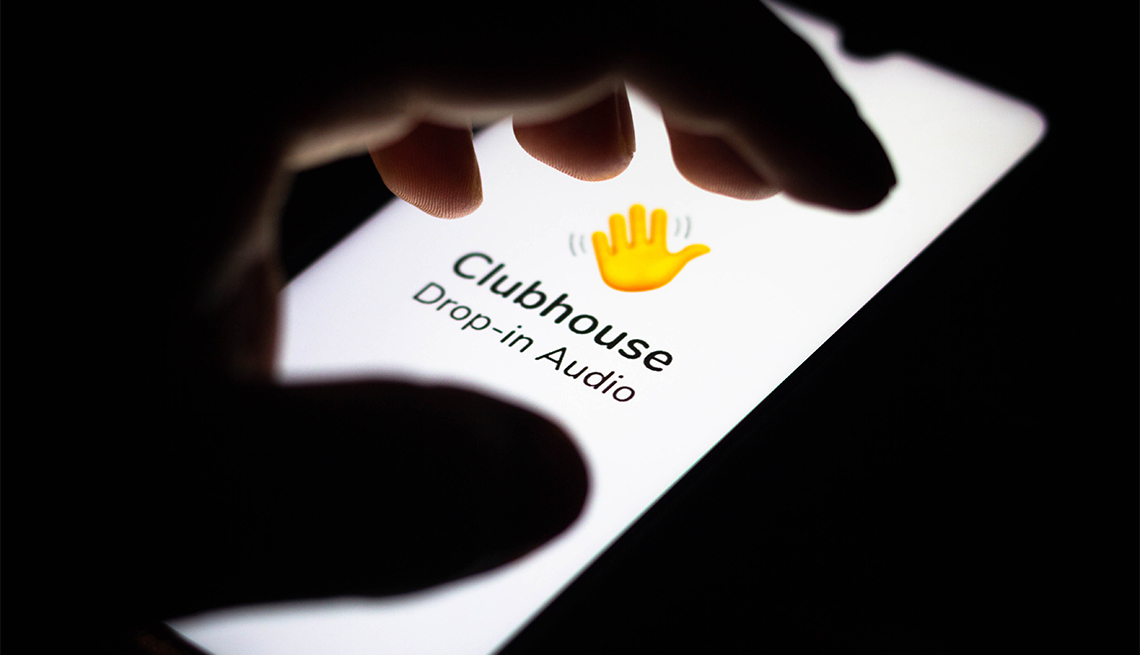
What is clubhouse and should you be on it?
- Select a language for the TTS:
- UK English Female
- UK English Male
- US English Female
- US English Male
- Australian Female
- Australian Male
- Language selected: (auto detect) - EN
Play all audios:
HOW CLUBHOUSE WORKS After completing the onboarding process and opening the app — for now Clubhouse is mobile only — you enter the home screen feed or “hallway,” where you can find people
and clubs to “follow” or available to chat. You can tap a calendar icon to see upcoming events. Inside a room, you see circled pictures (or initials) representing everyone else in there with
you. You can tap a circle to follow a person or view their profile. For now, you cannot send someone a private message. Newbies are encouraged to visit one of the many Clubhouse rooms aimed
at beginners. At 9 p.m. ET Wednesdays there's a new user orientation. Newcomers have a party hat badge on their profile page to encourage existing members to welcome them.
"Anyplace there is critical mass and you have somebody's eyeballs or ears … there always will be people who try to game the system or leverage it for some nefarious purpose."
— Irene Koehler, San Francisco State University Celebrities and thought leaders are participating in Clubhouse, so you might get to listen to and sometimes ask questions of someone like
Oprah Winfrey, 67, or Dr. Anthony Fauci, 80. But for many people, the experience is more about talking to each other. NO NEED TO SNAG AN INVITATION When it first launched as a beta test,
Clubhouse had a waiting list and was by invitation only. It was also just for iPhone and iPad users. But it was subsequently opened up to the Android community, and the invitation
requirement and beta designation were lifted on July 21. Some say the semi-exclusive nature of the app increased its allure. Its creators blogged that adding people in waves helped keep
things from breaking as Clubhouse scaled. For its part, Twitter is allowing users with 600 or more followers to host a Space, the Twitter equivalent of a Clubhouse room. Inside the Android
or iOS Twitter app, when someone you follow on Twitter starts speaking live in a Space, it will appear in your Twitter timeline as a purple bubble. You can respond with emojis or a tweet,
send a direct message and ask permission to speak. IS CLUBHOUSE SAFE? The open nature of these platforms may make some people skittish, given the polarizing atmosphere on social networks.
You may rightfully ask, “Doesn't Clubhouse (and its ilk) become the next outlet for scammers or people looking to use their voice to spread lies, fringe political views or hate?"
Alpha Exploration, the company doing business as Clubhouse, didn't directly respond to AARP requests for comment on the issue, but it did share its rules and community guidelines. For
starters, you must use a real name or identity on the service, and you can't enter a room incognito. Some speculate that an incognito mode might be added, presumably without giving
speaking privileges to someone in that mode. Members cannot abuse, bully, discriminate, harass or threaten violence. Nor can a member incentivize others to share private information.
It's considered rude to speak over people. Individuals can block abusers by navigating to the person's profile page, tapping on the three vertical dots, and selecting BLOCK.
Blocked users won't be able to see or join any room you create or in which you are a moderator or speaker. Clubhouse also will add an exclamation point (!) next to a person who has been
blocked by several other people in your circle.